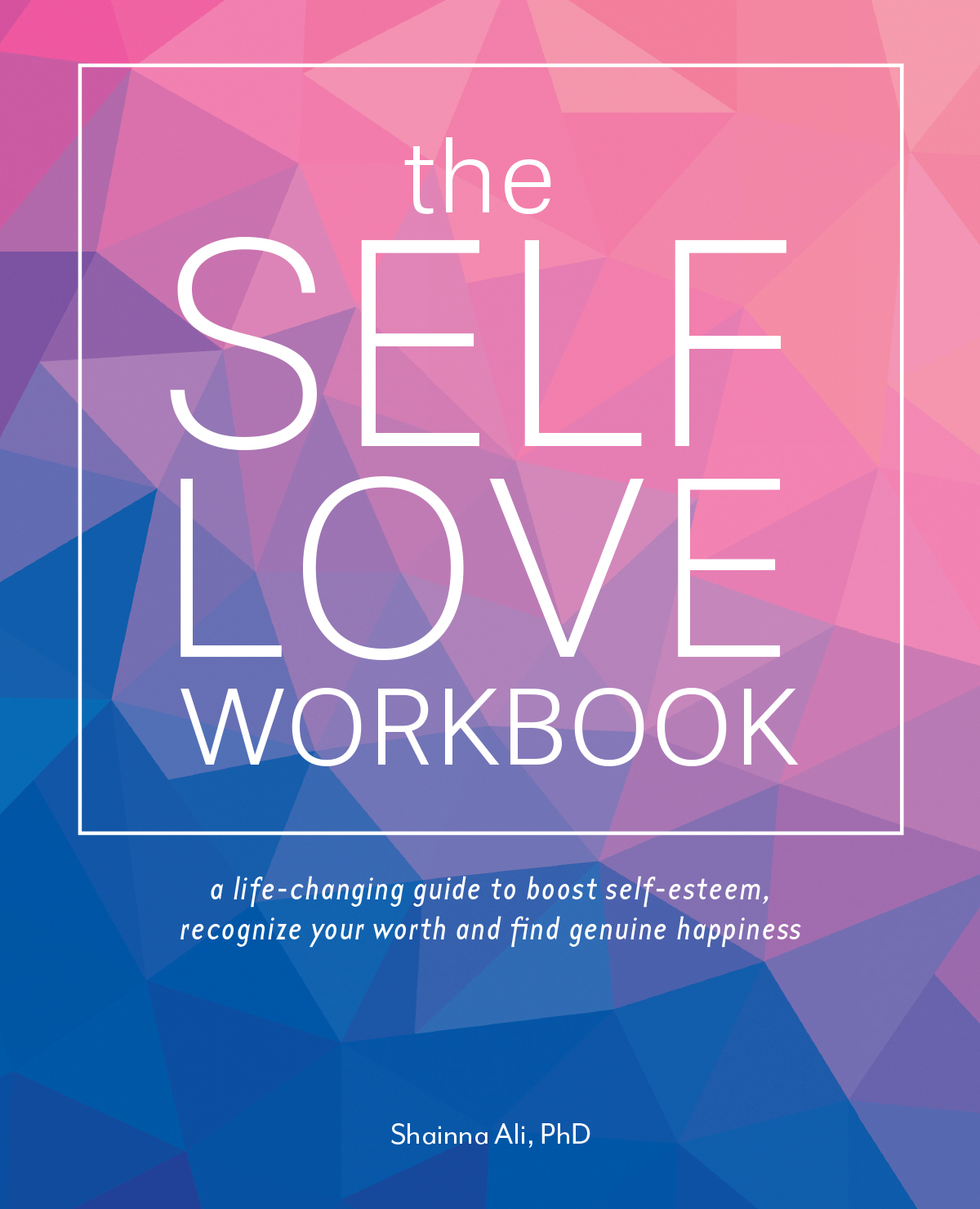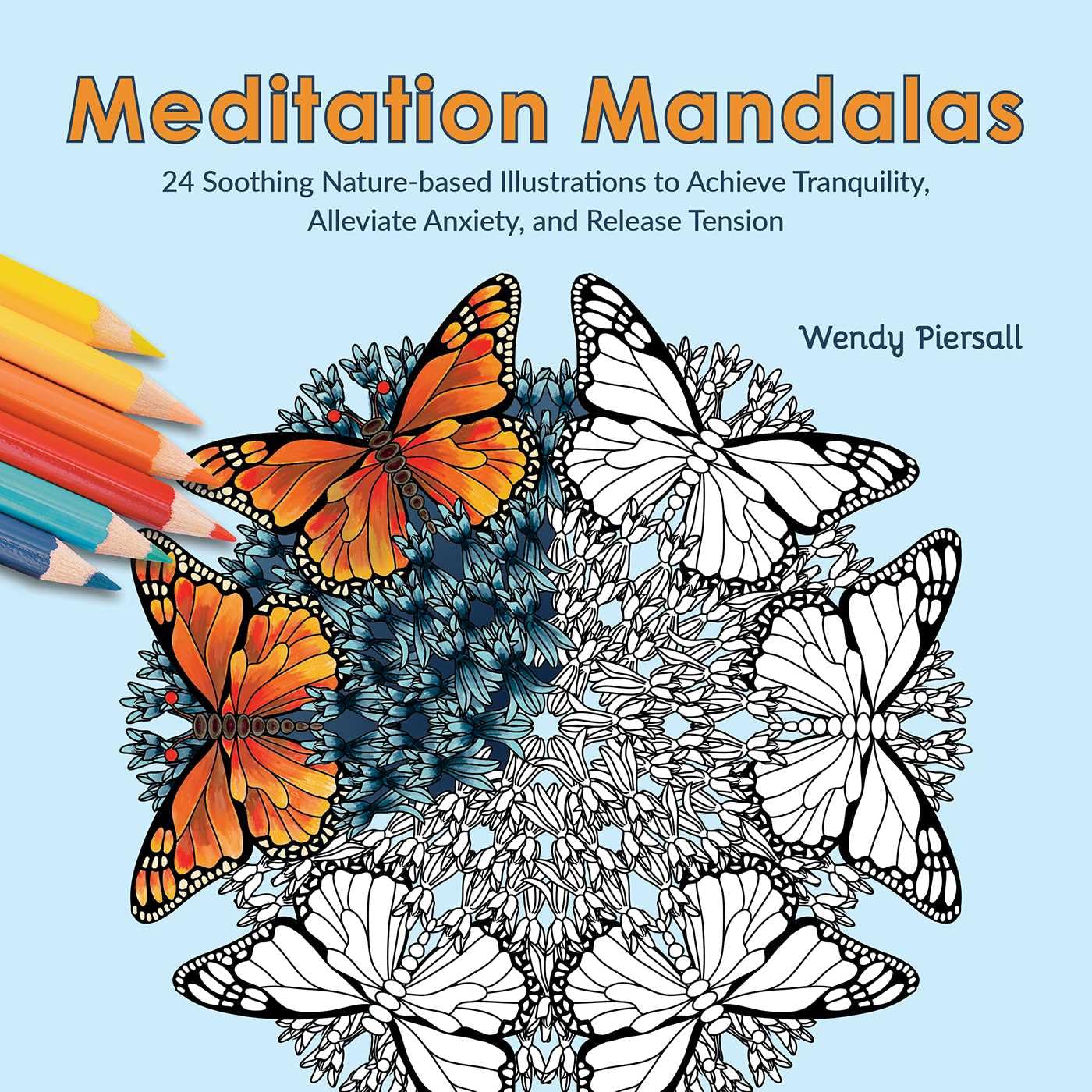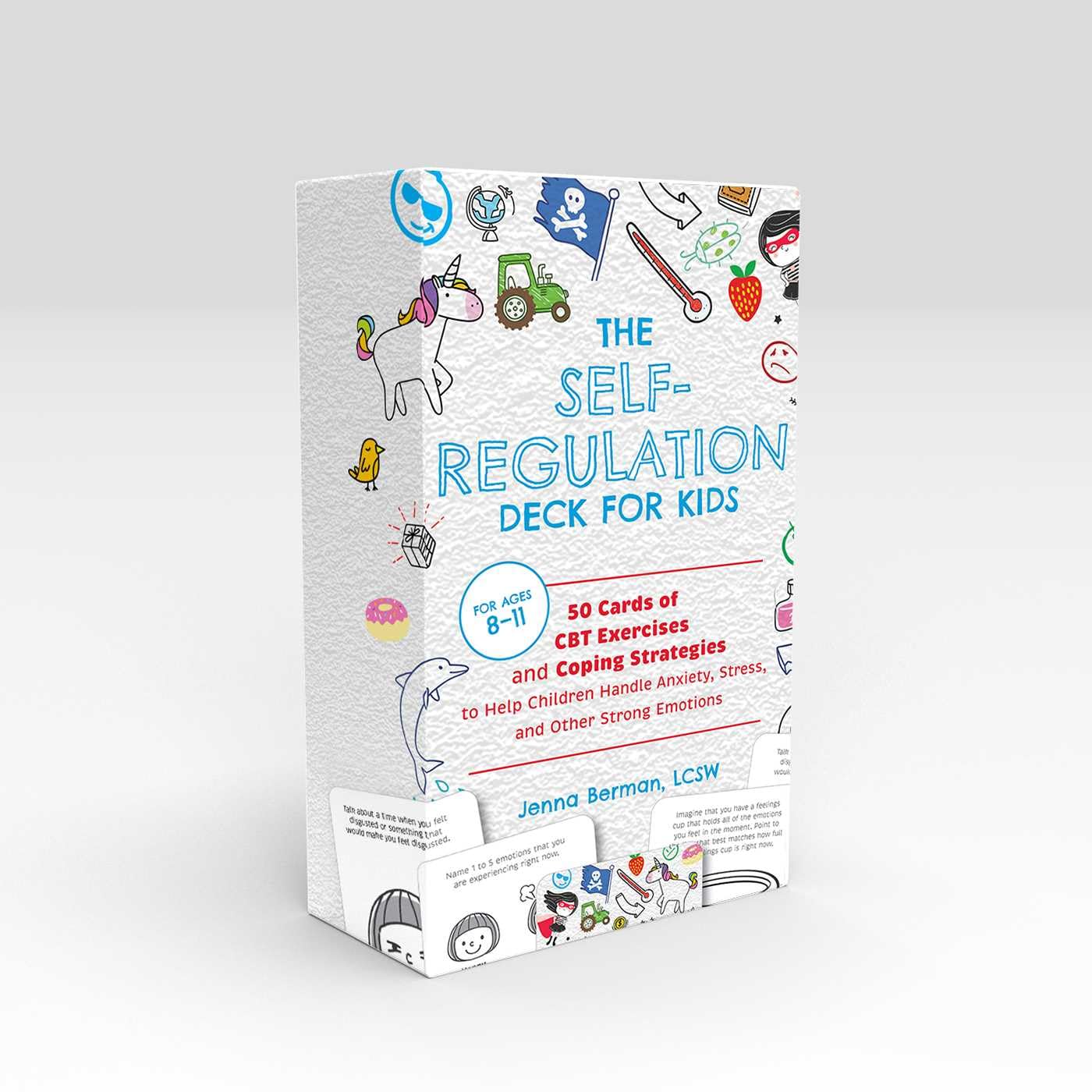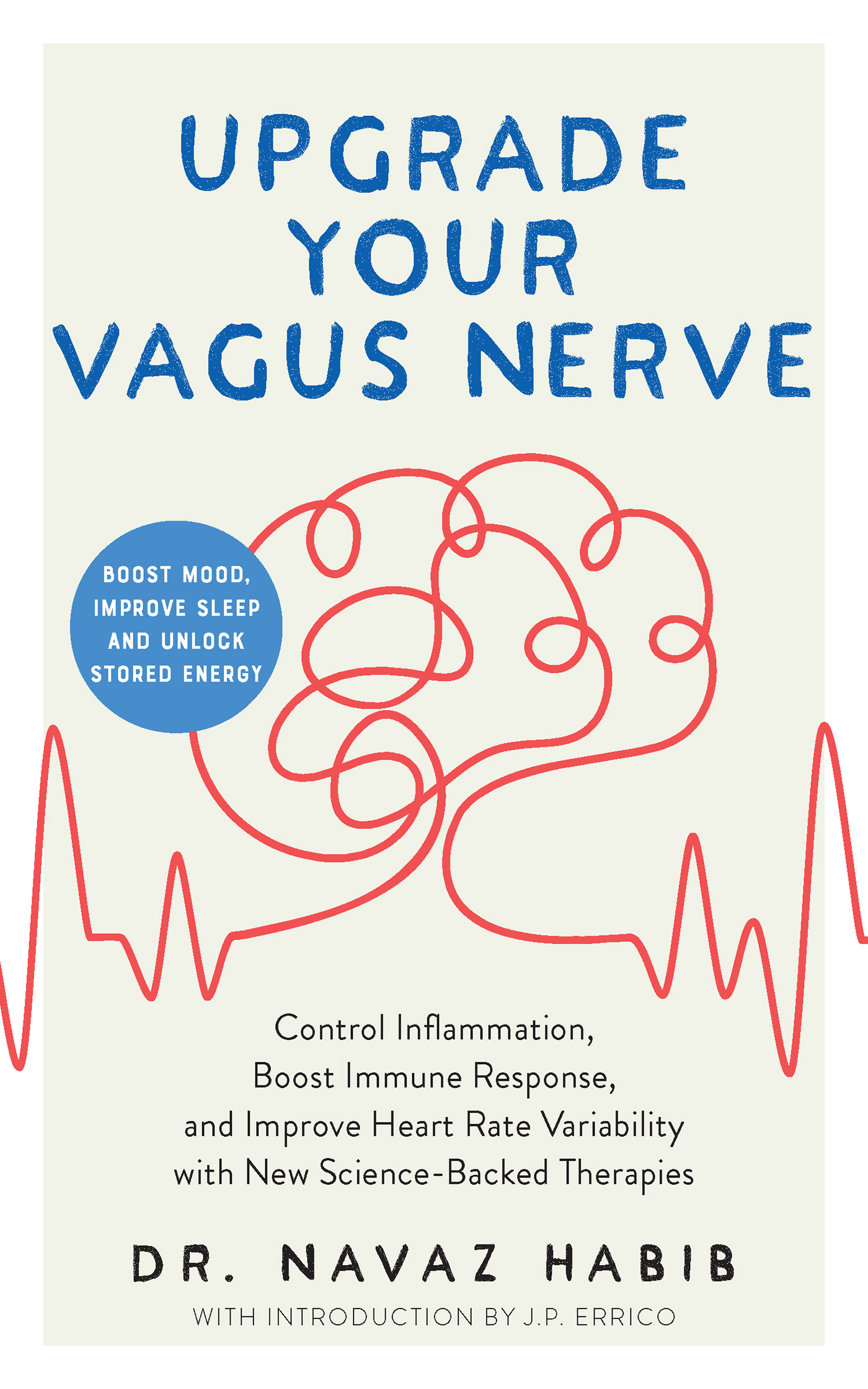
How to Get Started Toward Self Love and Acceptance
- Self-Help
An Introduction to Self-Love Exercises and Techniques
The following is adapted from the first chapter of the bestselling self-help book, The Self-Love Workbook by Shainna Ali. For more information on Shainna’s book, click here.
What is Self-Love?
Self-Love Definition
self-love \ , self-luhv \ n. 1. The active practice of accepting, caring for, and encouraging oneself
Just as water and air are vital to survival, so, too, is the need to love and be loved. Is it possible that a primary part of this necessity is the ability to love oneself?
Although not a new term, the concept of self-love has been gaining popularity in recent years. Thousands are being called to consider that love is not just an interpersonal concept, feeling, or behavior but an intrapersonal process as well. We need love from ourselves as much, and perhaps more, than we do from others.
The process of self-love begins with the mere task of being able to appreciate you for you. It is crucial to be kind and considerate toward yourself; however, self-love is more than a sentiment. Beyond your ability to tend to yourself, you must remember that self-love is an intentional practice to learn and cultivate. Self-love provides you with the opportunity to see yourself completely, to recognize and value your strengths and weaknesses, triumphs and challenges. It is critical to acknowledge your imperfections and obstacles in order to nurture your personal growth.
Self-love is wondrously empowering and validating, yet it is not always an easy task. It is more than indulging in your favorite food and escaping to an island paradise. Within this process, it is helpful to recognize that without darkness there cannot be an appreciation for the light. Self-love also requires the courage to reflect on where you are, the bravery to consider where you want to be, and the tenacity to strive to be a better version of your true self.
With an emphasis on the self, this journey is ultimately an independent one. Although it is helpful to unite with others who are on a similar path, at the end of the day self-growth is predominantly dependent on personal effort. The process of loving oneself is a subjective experience. Just because a tip has worked for many does not mean it will work for all. Honor your individuality as you attempt to follow the guidance provided in this book.
While fruitful, the process of self-love is not a summit to conquer. Instead it is a continuous practice of caring for yourself. Hence, self-love includes the dedication to prioritize yourself regardless of the chaos that life may bring.
Overall, self-love is an all-encompassing practice of recognizing your self-worth, being kind toward yourself, and fostering your self-growth throughout the course of your life.
THE IMPORTANCE OF SELF-LOVE
ASHA As long as Asha can remember, she has dreamed of her prince sweeping her off of her feet in a fairy tale union. She even describes herself as the quintessential hopeless romantic on her dating profile. As she attends wedding after wedding, with a different date each time, she begins to worry. Her long list of short-term relationships has caused her to become discouraged. Asha doesn’t give up. She continues to invest her all into each budding romance, only to be met with heartbreak each time. Feeling like the forever third wheel, she starts to isolate herself from her friends. When her loved ones touch base, she fears the impending awkward exchange in which she has to report time and time again that she hasn’t found the one.
MARIANA Mariana had a difficult upbringing. Born to a young mother, Mariana lived with her mother and grandmother growing up. Her mother was often out of the house and didn’t spend a lot of time with her. Fortunately, Mariana had her grandmother, and eventually, younger siblings to keep her company. When Mariana was ten, her grandmother was diagnosed with stage IV cancer, which progressed quickly. The family struggled for several years to make ends meet. Mariana now feels the pressure to drop out of school to help pay the bills. Wanting a better future for herself and her family, Mariana turns to risky side jobs to juggle staying in school and helping her family.
DEVON With an empty nest and pending divorce, Devon finds himself reflecting on his life. While he spent decades establishing a notable career as a cardiothoracic surgeon, his time with his spouse and three children seems to be a blur. Although he is happy that he achieved his dream of gaining prominence in his field, he is beginning to recognize the cost of his hard work. While Devon is proud to have been able to support his family throughout the years, he is beginning to recognize that his financial support could not account for his absence. Devon becomes overwhelmed thinking about all of the moments that were missed due to his ambitious path, and how he may never have those opportunities again. Devastated, Devon turns to excessive alcohol use to numb his feelings of despair.
Asha, Mariana, and Devon are average people not too different from you. Like anyone else, they need self-love. From these cases we catch a glimpse of a time in their lives in which they are unaware of the importance of self-love. At this point in time, Asha, Mariana, and Devon are all unable to see and honor their worth. They do not realize that in order to care for others, we must also care for ourselves.
They have disconnected from their true selves and have been facing consequences as a result of that severance. Asha has been focused on finding love, but in the wrong places. She has been fixated on finding someone to love her, rather than seeking to love herself first. Mariana has the best of intentions for her loved ones; however, the pressures of life have caused her to sacrifice until she is depleted and risks being unable to take care of herself or anyone else. Devon’s visible successes caused him to become prideful and materialistic, and while he’s excelled in his profession, he still struggles in matters of the heart.
Like anyone else, Asha, Mariana, and Devon are all capable of making the choice to infuse self-love into their lives. With that brave choice, they can explore and reconnect with their genuine selves. They can discover and embrace their strengths and embrace them to improve their quality of life. They can understand their areas for growth and explore them with patience and kindness. As they embrace a self-loving lifestyle they will be able to care for and respect not only themselves, but others well.
Without a strong sense of love for yourself, you may experience…
• Anxiety
• Carelessness
• Criminal behavior
• Defensiveness
• Depression
• Hopelessness
• Insecurity
• Materialism
• Negligence
• Prejudice
• Sadness
• Sham
• Stagnanc
• Suicidal thoughts
• Unhealthy coping
On the other hand, with a strong sense of love for yourself, you may benefit from gains in…
• Academic achievement
• Altruism
• Belonging
• Career success
• Confidence
• Empowerment
• Encouragement
• Enthusiasm
• Happiness
• Inspiration
• Love
• Motivation
• Passion
• Relationship quality
• Self-care
• Social support
• Physical health
• Parenting skills
WHAT SELF-LOVE ISN’T
Self-love has been met with critique. However, these appraisals are based on misunderstandings. To help clarify, let’s be clear on what self-love is not.
ENTITLEMENT When a person has a sense of entitlement, they may believe they are unconditionally owed something regardless of efforts, merit, or context. This should not be confused with the idea of recognizing your worth. Depending on your perspective on humility and deservingness, you may find it difficult to assert you are worthy of self-love. If this is the case, it may be helpful to consider basic human needs. One could argue that compassion, care, and acceptance are as fundamental as water, food, or shelter. Therefore, recognizing your worth and need for self-love overall is not that ridiculous to seek. Self-love isn’t about why you deserve a billion dollars, a fancy yacht, or a mansion. It isn’t an overtly ambitious jump. It isn’t elite or exclusive, but a core aspect of humanity.
SELFISHNESS Focusing on self-love is not the pathway to obsession. Although self-love is a reflective process in which one turns their energy inward, the benefits are not selfish. In actuality, in order to care for others effectively, one must first care for themselves. Prior to taking off on an airplane, the flight attendant assures flyers that in the case of an emergency, regardless of who is nearby, it is critical to first put on your oxygen mask before helping others. We wouldn’t dare tell someone who abides by this regulation that they are truly selfish. Similarly, you can’t pour from an empty cup. Self-focus is not egocentric; ultimately, self-focus helps you and others.
In addition, whereas narcissism may be superficial and vain, self-love is quite the opposite. Self-love delves beyond the surface and isn’t all rainbows and unicorns along the way. Along with recognizing your worth, needs, and goals, self-love requires the courage to distinguish your weaknesses, challenges, and obstacles. Therefore, self-love necessitates humility, empathy, and concern for the self as well as for others.
SINFUL A sin is an act that is not only inappropriate but often violent. Self-love is just the opposite. Self-love isn’t meant to go against a principle or moral grounding; it is the enlightened journey to care for yourself in order to prompt a domino effect of care and compassion for those around you. Nevertheless, due to varying concepts of what self-love truly entails, from time to time individuals may view self-love as against their values and beliefs. Just as everyone is unique, their interpretation of scripture may vary as well. If you are struggling with differentiating self-love from sin, it may be helpful for you to research and reflect on whether or not a conflict truly exists.
Regardless of your faith or beliefs, it may be worthwhile to consider the commonalities in various world religions. Oftentimes, the tasks encapsulated with being a moral person include benevolence, forgiveness, and personal growth, all of which align well with the practice of self-love. More specifically, the golden rule of treating others as you want to be treated is the essence of self-love. From this common adage, we often jump to the lesson to treat others kindly, but we should not forget the implication requires being kind to ourselves as well.
“Love yourself first and everything else falls into line. You really have to love yourself to get anything done in this world.” —Lucille Ball
AN EXCUSE Self-love is an active, engaged process that evokes a wealth of positive benefits. Nevertheless, the journey is not always an easy one. A critical component in self-love is recognizing your limits, needs, and worth, and asserting intrapersonal and interpersonal boundaries as needed to uphold them. While this all-encompassing process may include mental health days, massages, and indulging in your favorite home-cooked meal, it is not an exploitation of all things good. Ironically, perpetual pampering could actually be neglectful and, hence, distinct from self-love. The full process of self-love includes the good, the bad, and the ugly. Beyond the stereotypically positive perks, self-love also includes the decision to recognize your areas for growth, tailoring a potentially difficult yet necessary plan of attack, and bravely tackling it head on. To an outsider without context, self-love could appear as an excuse; however, it is critical that you not use self-love as your hall pass to escape responsibility, accountability, and difficult situations in general. In contrast, true self-love can be enacted by taking accountability and responsibility as you courageously embark on arduous paths.
OBSTACLES IN SELF-LOVE
Recognizing what is holding you back from loving yourself and living a happier, healthier life is a crucial component as you prepare to tackle these challenges on your path to self-love. Since self-love is a subjective journey, the obstacles may vary from person to person. Our unique combination of attributes, such as our history, intentions, beliefs, personality, values, and goals, may coalesce and connect us to the self-love process. However, these characteristics may combine to create roadblocks as well. Although variation is expected, there are some common concerns that impede on the ability to love oneself.
“Your task is not to seek for love, but merely to seek and find all the barriers within yourself that you have built against it.” —Rumi
ABUSE Physical, sexual, and psychological abuse all provoke consequences that may risk severe impairment. Individuals who endure abuse often have feelings of shame and guilt that inhibit their ability to seek help and heal. Even past memories of abuse can be pervasive and may be triggered, thus distracting from and impeding one’s progress in the present.
Abuse often happens at the hands of someone who is known and trusted. This person could be a loved one, such as a parent or partner. This betrayal can foster a lack of trust in oneself and in others, causing one to question their worth and encounter issues with self-esteem, self-confidence, and self-respect. All forms of abuse may yield psychological consequences. Psychological abuse includes pain without overt physical harm, which may cause the severity of psychological concerns to be further ignored, minimized, or difficult to recognize. Sticks, stones, and words can be painful. Name-calling, yelling, insulting, threatening, excluding, mocking, humiliating, and criticizing all have the potential to be deeply painful and powerful offenses that often prohibit a person’s ability to love themselves.
COMPARISONS One of the ways we tend to harm ourselves is by drawing comparisons. They may arise out of an innocent observation, and could even be motivational. However, when comparisons morph into pure negativity, they have the potential to form large roadblocks in your journey of self-love. Comparisons become a grave concern when they are habitual, obsessive, and/or constant. It is one thing to utilize a comparison to inform your assessment of your progress, but when exploited, this previously useful tactic feeds your inner self-critic. As negative self-talk increases and loudens, the inner encourager may weaken and fade into the background. Over time, what may have been a seemingly innocuous analysis can carve out an unrealistic, impossible standard paired with a self-defeating mindset that suppresses the ability to love yourself.
MENTAL ILLNESS Tending to proper mental health care is fundamental to a successful journey of self-love. While all individuals can benefit from self-love in their lives, loving oneself is not the solution to mental illness. Self-love can certainly be helpful for those who live with mental health diagnoses, especially those pertaining to anxiety, depression, interpersonal problems, and trauma; nevertheless, it is not an appropriate replacement for professional mental health care. Furthermore, consistent setbacks on the path of self-love may point to an unattended mental health concern. If this occurs, it is important to consult with a mental health professional to assist you in shedding light on previously unidentified concerns. Bringing awareness to a prior hidden concern may be an empowering shift in your process. Equipped with a qualified clinician and your will to set out on your self-love journey, you can cross over the hurdle of illness impeding your ultimate success.
DANGER Existential psychologist Abraham Maslow asserted that humans have five basic levels of needs: physiological, safety, social, esteem, and self-actualization. The hierarchy of needs conveys that the primary needs are sequential in nature. All individuals are capable of arriving at the pinnacle, self-actualization. After a process of surpassing requisite needs, an individual enjoys a sense of genuine fulfillment. To achieve improvements in self-esteem, self-growth, and self-love, you must first establish foundational needs—physiological, safety, and social. Although self-love is a necessity, it is important to recognize priorities. An unwillingness to consider a hierarchy could cause you to become frustrated by placing your energy on self-love when it is not presently possible to be absorbed within that domain. You wouldn’t enroll in calculus without rudimentary mathematic knowledge, and you should approach your needs similarly.
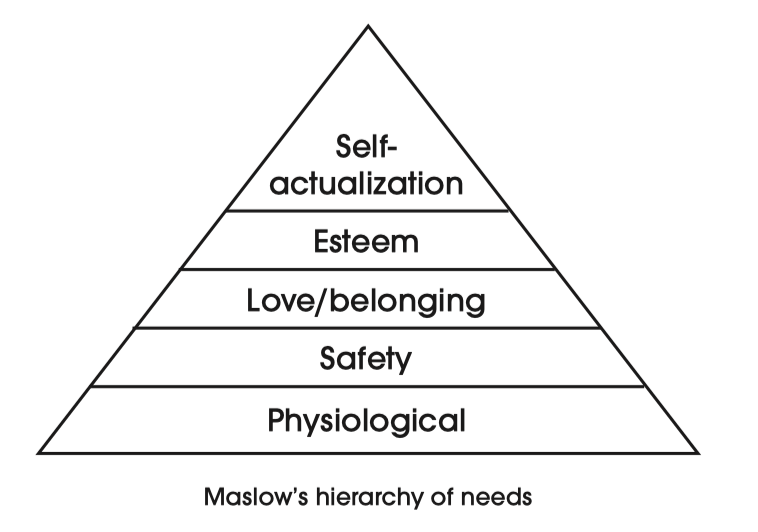
Maslow’s Hierarchy of Needs
For individuals who are struggling to put food on the table or even find shelter (physiological and safety needs), the ability to focus on self-love is not unneeded, it may simply be a luxury within that context. If a challenging phase in life shakes your foundation, it is certainly justified if you choose to temporarily pause your current self-love to regain your equilibrium.
In reference to the social domain, we need others just as they may need us. When our loved ones need our attention, care, and love, it is understandable to deter from our journey to help them. Our esteem needs encompass how we view ourselves and how others view us as well. While we may often rely on others to serve as a mirror for our esteem, it is important to remember that self-esteem is fostered internally. Therefore, fulfilling our esteem needs are a balance of our views and those of others. Regardless of the level, our needs may be tested throughout our lives, and it is helpful to remember to tend to our fundamentals so we can continue on our self-love journey.
PREPARING FOR YOUR JOURNEY
This workbook will likely be easy to read, but harder to practice. Unfortunately, simply reading the material will not improve your self-love. To fully engage in this journey, you will need to be open and honest with yourself. There may be moments in which you feel the need to detour from unfamiliar territory. When you encounter areas you are not yet ready to delve deep into, a detour may be helpful. As you continue in your journey, you may gain the tools needed to return to and tackle these obstacles. However, making this a habit and consistently veering around essential points in the process may inhibit your growth.
You can skim through the pages of this workbook quite quickly, but processing and applying the core concepts will take more time. This journey will require patience. If you were preparing for a marathon, you would not expect yourself to run 26.2 miles on the first day of training. Chances are that you would not view this as a defeat. Instead, you would intentionally condition yourself for the challenge by allocating the necessary time, energy, and preparations. Furthermore, you would be kind and encouraging to yourself as you strove to reach your goal.
Although there can be interpersonal aspects and benefits of self-love, it is predominately an intrapersonal process, responsibility, and commitment. There will certainly be peaks in which you will recognize your growth, and valleys consisting of more difficult moments. Therefore, this process requires courage as you anticipate both wonderful achievements and trying tasks. Your unique, reflective, and engaging journey to improve your overall practice of self-love will persist beyond this workbook as true self-love is a continuous process rather than a destination.
SEVEN SEGMENTS OF SELF-LOVE
In the chapters that follow you will travel through the seven segments of self-love. Before you delve into deeper reflection, take a moment to consider where you believe you are in each:
1. Self-awareness is the ability to recognize who you are, how you influence the world, and how the world influences you. Self-awareness encompasses your ability to attune to and take accountability for your thoughts, feelings, and behaviors.
2. Self-exploration is the courage to delve into learning about yourself in order to improve your knowledge of who you are.
3. Self-care is comprised of a wide variety of tasks that require you to take care of your overall wellness.
4. Self-esteem is the result of how you view your overall self.
5. Self-kindness is the skill of being friendly to yourself.
6. Self-respect is the empowered ability to advocate for oneself.
7. Self-growth is the continual process of seeking opportunities to learn, love, and thrive.
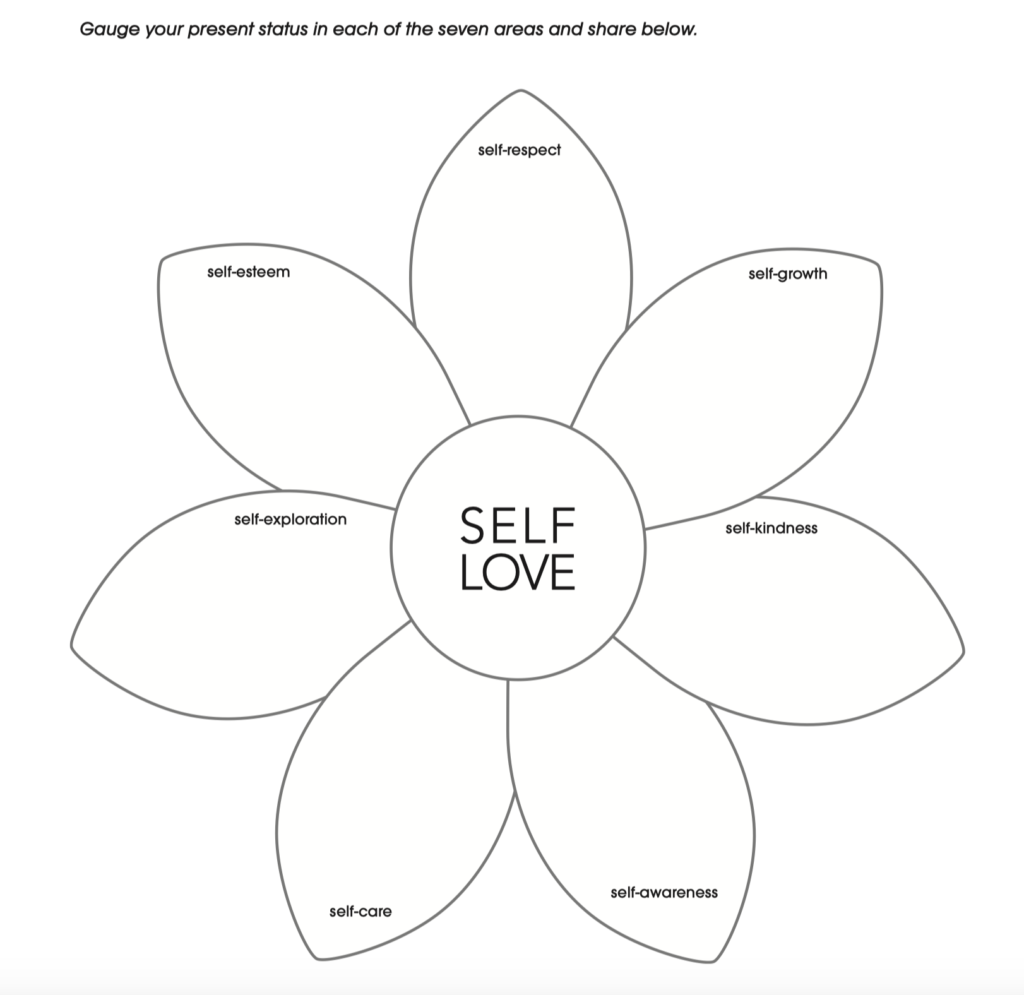
The Self-Love Workbook
Experience the life-changing magic of self-love! It’s easy to look in the mirror and say you love yourself, but infinitely harder to truly believe it deep in your soul. Luckily, this helpful, step-by-step workbook guides you along a path to that place of true acceptance and self-love. And when you reach it, the contentment, happiness and
Learn more